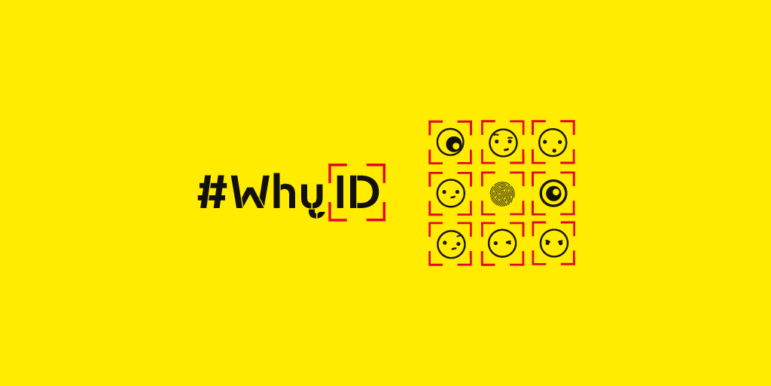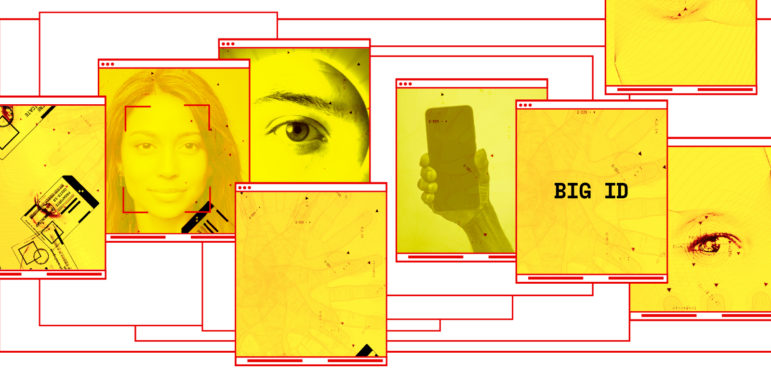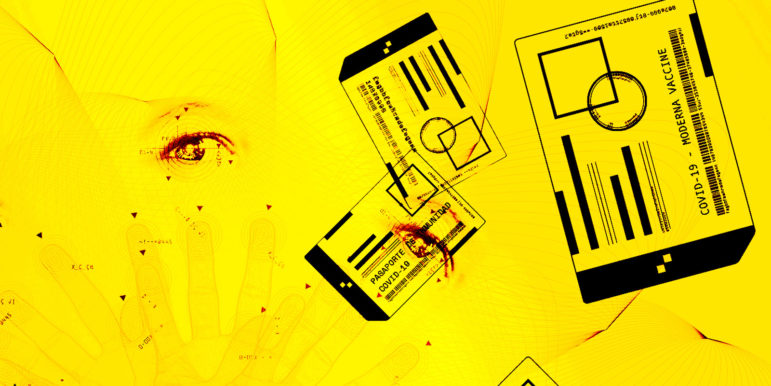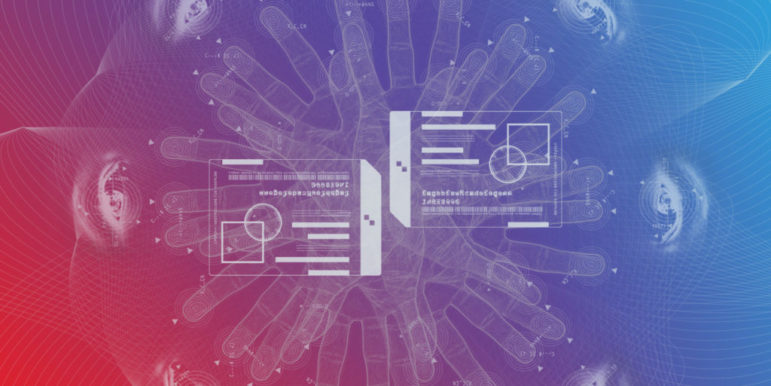PUTTING PEOPLE FIRST IN DIGITAL ID SYSTEMS
Digital identification systems are more dangerous than you think. They can undermine people’s privacy, increase surveillance, and push the most vulnerable among us further to the margins. We challenge those promoting these systems to first consider alternative solutions and, when a digital ID system is appropriate, to center human rights in its design and implementation.
#WhyID
An open letter to the leaders of international development banks, the United Nations, international aid organisations, funding agencies, and national governments
Resources

Data Protection
The digital identity toolkit
Developed by Access Now, this toolkit helps build the lexicon and framework around digital ID issues to facilitate a human rights approach.

Cybersecurity
A human rights-centered approach to digital public infrastructure
Read Access Now’s recommendations for lawmakers to ensure digital public infrastructure protects human rights.

Data Protection
Why we need tailored identity systems for our digital world
Digital identity systems are no silver bullet for social challenges. Here’s why a “minimalist” approach makes sense, while protecting human rights.

Data Protection
Open letter: World Bank and its donors must protect human rights in digital ID systems
Access Now and partners urge the World Bank to immediately stop activities that promote harmful models of digital ID systems.

Data Protection
Busting Big ID’s myths
Big ID programs threaten our human rights yet are spreading like wildfire around the world. To buck the trend, we need to debunk the myths that propel digital ID systems forward.

Data Protection
Go back to the drawing board: Kenya must scrap unconstitutional Huduma Bill 2021
Civil society organizations are calling on the Kenyan parliament to immediately scrap the unconstitutional Huduma Bill 2021.

Data Protection
Biometric ID in Tunisia: a threat to privacy and data protection
Authorities in Tunisia have been deliberating over a biometric ID law that bears threats to the right to privacy & other fundamental rights.
What are digital identification systems?
Digital identification or “digital ID” systems are those that use digital technology to establish the identity of an individual. More often than not, they refer to systems that aim to establish the legal identity of a person through processes of data capture, validation, storage, transfer, verification, authentication, and management. This can include different aspects of a person’s legal identity as it pertains to their relationships with authorities, or only a specific aspect of it, such as voting or travel.
Why do they matter?
The deployment of digital identification systems, by their very nature, affects every aspect of human life, including the rights to education, healthcare, work, freedom of movement, and autonomy. The heightened risk of surveillance that digital identification systems entail is rapidly undermining people’s privacy all over the world, and as a consequence, pushing the most vulnerable among us further to the margins of society, deepening existing inequalities, and further harming human rights. Access Now challenges those advancing these systems to first consider alternative solutions and, where ID systems are appropriate, to center human rights in their design and implementation.
Latest Updates

Fourth year under Myanmar military’s digital iron curtain

Manual da Pessoa Vigiada
O Manual da Pessoa Vigiada é um guia para ajudá-lo a navegar no sistema judiciário caso você seja detido injustamente por sistemas biométricos.

A human rights-centered approach to digital public infrastructure
Read Access Now’s recommendations for lawmakers to ensure digital public infrastructure protects human rights.

Big Tech and the risk of genocide in Gaza: what are companies doing?
Big Tech is playing a central role in enabling the relentless mass slaughter and destruction unleashed in the war in Gaza.

Surveilling Europe’s edges: detention centres as a blueprint for mass surveillance
In the third and final part of her blog series, Caterina Rodelli examines how EU migration policies and detention practices on the island of Samos are strengthening the EU’s wider, permanent mass surveillance infrastructure.

Surveilling Europe’s edges: when research legitimises border violence
In the second part of her blog series, Caterina Rodelli explains how EU-funded research projects on border surveillance are legitimising violent migration policies in Greece.

Surveilling Europe’s edges: when digitalisation means dehumanisation
In the first of a three-part blog series, Caterina Rodelli explains how digital surveillance is dehumanising people at Europe’s borders.

Open letter to European Commission: the dangers of age verification proposals to fundamental rights online

Venezuela: digital id as a tool of oppression

Why we need tailored identity systems for our digital world
Digital identity systems are no silver bullet for social challenges. Here’s why a “minimalist” approach makes sense, while protecting human rights.

A pathway forward for digital rights
Brett Solomon shares insights from 15 years as Access Now Co-founder and Executive Director.

We need digital ceasefires to tackle warfare in the digital age

Vietnam requires facial recognition for digital payments

Acuerdos y tecnologías permiten violaciones a la privacidad de las personas migrantes y en tránsito

ICE, CBP sued for details on migrant data sharing agreements

Access Now Grants: how we supported activists in 2023
In 2023, Access Now Grants supported activists facing digital threats around the world, from Palestine to Myanmar to Ukraine and beyond.

